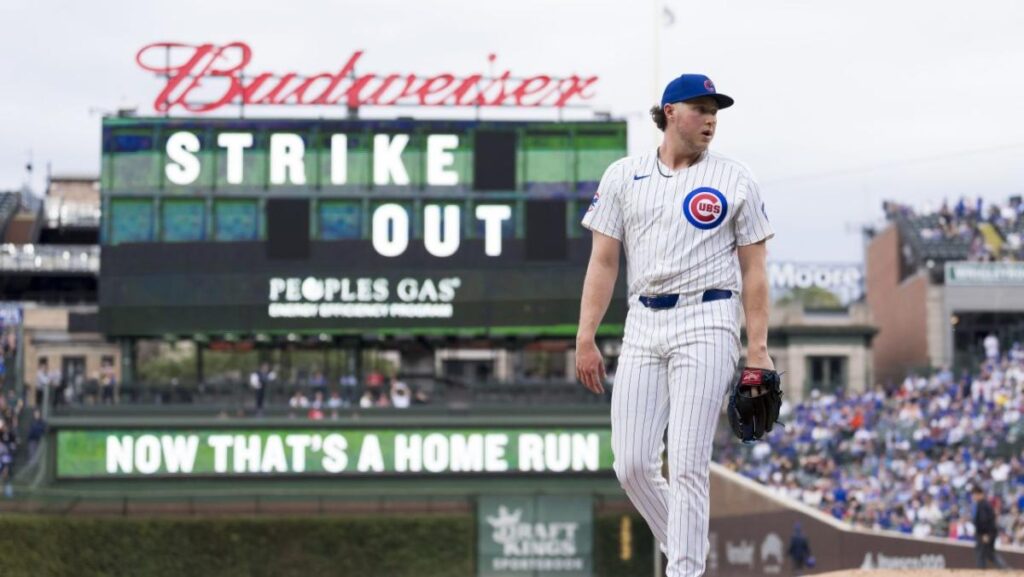A federal district judge in Chicago on Tuesday advanced a lawsuit brought by the Chicago Cubs against Wrigley View Rooftop, a company that provides 200 guests with a view of neighborhing Wrigley Field in exchange for fees.
Judge Sharon Johnson Coleman denied Wrigley View Rooftop’s motion to dismiss on grounds that an arbitration provision in a prior settlement agreement is an “improper mechanism” for dismissing the lawsuit. The motion claimed that the case should instead be dispatched to arbitration, not federal court, but Coleman stressed that, per precedent in the U.S. Court of Appeals for the Seventh Circuit (which governs federal district courts in Illinois), motions to dismiss on the basis of venue do not authorize a court to enforce an arbitration provision.
More from Sportico.com
The Cubs sued Wrigley View Rooftop and company owner Aiden Dunican last June, arguing misappropriation, unjust enrichment, unfair competition and unauthorized use of trademarks. The case is the latest development in a multi-decade legal dispute regarding owners of buildings adjacent to Wrigley Field that sell seats to watch Cubs games, concerts and other events.
The Cubs have long argued out-of-stadium rooftop businesses essentially steal what the team sells to consumers: the chance to watch Cubs games and other Wrigley events in-person. As the Cubs have argued in court filings, the team spends more than $100 million a year on the salaries of players, coaches, scouts, trainers and others to provide that product and ought to be able to protect access to it. Fans who attend Cubs games also buy merchandise, apparel and food and beverages, all of which are revenue sources the Cubs seek to protect. Rooftop businesses, meanwhile, are arguably free riders in that they don’t pay to produce the product yet profit from it.
Over the years the rooftop businesses have insisted they are acting within their rights. They have asserted Wrigley Field, which was built in 1914, was constructed in a city. The team knew adjacent buildings could overlook the ballpark yet proceeded with the project. Rooftop businesses have also argued there is a lack of case precedent for a finding that watching a live performance from an adjacent location is an illegal or unlawful act. Another defense is property rights—namely that owners of adjacent buildings can use their property as they see fit.
In 2004, the Cubs and rooftop businesses settled litigation over this issue in an agreement that expired on Dec. 31, 2023. The settlement involved the businesses sharing about 17% of their revenue from out-of-stadium rooftop seats and 11% of billboard revenue with the Cubs. After the deal expired, the Cubs offered to extend it for an additional term. As Coleman notes in her order, only Wrigley View Rooftop declined the offer. The company proceeded to advertise, use Cubs’ trademarks on its website and sell tickets to games and other live events held at Wrigley Field last year.
The Cubs maintain that while the settlement agreement contained an arbitration provision, the agreement expired in 2023. The parties, the Cubs argue, neither negotiated nor intended to create a “perpetual arbitration obligation” that would survive the agreement’s expiration. “Defendants,” the Cubs insist, “cannot rewrite the Agreement to impose new obligations they failed to bargain for 20 years ago.” The team also stresses that the disputed conduct—Wrigley View Rooftop’s actions in 2024—occurred after the settlement ended.
For its part, Wrigley View Rooftop argues it does not “sell access to Wrigley Field or events taking place there.” Instead, the company says it sells “licenses to access” a rooftop location where customers “enjoy the unique view it provides, as well as food and beverages to enhance the experience.” Wrigley View Rooftop also maintains the arbitration provision survived the expiration of the settlement and governs the dispute.
The case could settle at any time, but for now moves forward.
Best of Sportico.com
Sign up for Sportico’s Newsletter. For the latest news, follow us on Facebook, Twitter, and Instagram.
Read the full article here

